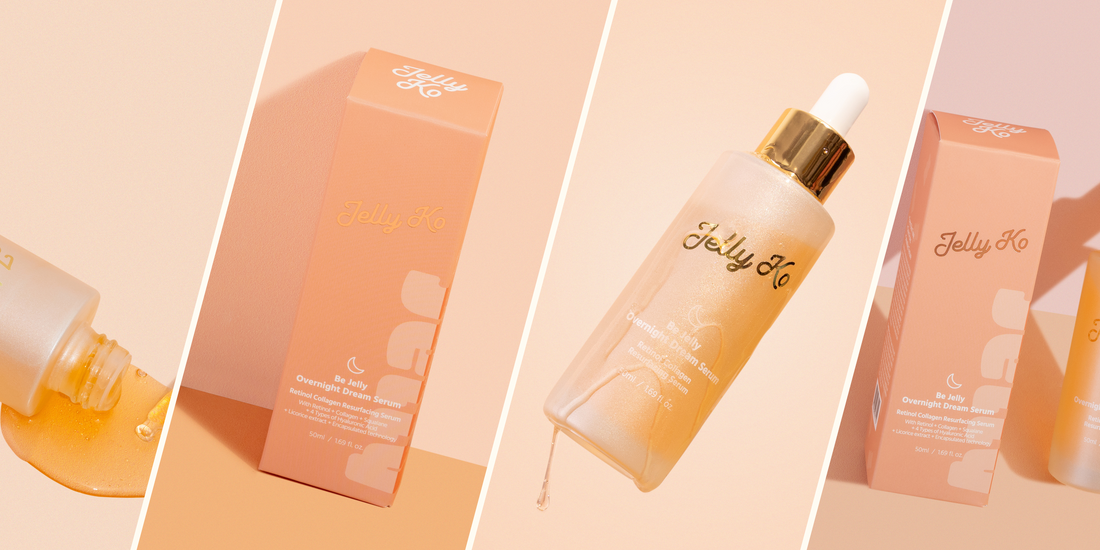Need to Know About Probiotic Korean Skincare
Korean skincare has had a love affair with probiotics for years. After all, this is the country that invented Kimchi!
When you come to Korea you'll see Yakult ladies riding around on carts selling probiotic drinks to the masses.
When it comes to probiotic skincare however, that trend really started around 2017, although some Korean research and development teams began studying micro-organisms as far back as 1997.
The Rise of a New K-Beauty Trend
Keyword trends around probiotic themes like yoghurt increased significantly in Korea around 2017 to 2018.
There were good reasons why Koreans took to probiotic skincare so quickly:
- Many Koreans already believe in the link between inner and outer health. Some even believe that the skin, brain, and intestines are connected to each other;
- Koreans have a long culture and history of eating probiotic foods, including fermented foods like kimchi;
- Korean research and development teams are always on the front foot with global beauty trends, and quickly began to develop products featuring probiotics.

The Probiotic Skincare Market
The probiotic trend is not restricted to K-Beauty. In fact, the global probiotic skincare market has exploded in recent years. One report by Allied Market Research suggested the probiotic skincare market would grow to reach $981.3 million in 2034, up from $320.3 million in 2023. They confirmed:
There's no doubt that one of the key drivers behind the growth of this trend is the increase in consumer awareness around the skin's microbiome and its role in maintaining skin health. To learn more about it, check out our previous post on microbiome skincare.

What are Probiotics?
Probiotics are live, active bacteria. Each strain has a different function. Traditionally, probiotics have been associated with gut health, where they are known to reduce stomach cramps, bloating and inflammation. This is why many Koreans take probiotic supplements, including drinks like Yakult.
To hear more about supplements in Kbeauty tune into this episode of the Korean Beauty Show podcast.
After the gut, the second largest microbiome in the human body is the skin. It was therefore an easy jump for Korean companies to start focusing on the skin's microbiome health in addition to gut health.

Benefits of Probiotics in Skincare
When it comes to the benefits of probiotic skincare, the idea is to maintain your skin's barrier health. Microbiome balance is important for this because it can help with skin concerns like:
- Aging and environmental factors;
- Optimising your skin’s natural pH levels;
- Calming irritated and red skin;
- Locking in moisture.
Probiotic skincare is therefore great for all skin types.

What Are Probiotic Ingredients in Korean Skincare?
You'll often hear ingredients like ferments and lysates being described as "probiotics". These include popular Korean Beauty ingredients like Lactobacillus Ferment, Bifidus Ferment or Saccharomyces Lysate. However, because these bacteria are no longer alive, they are more technically more accurately described as post-biotics, i.e. the by-product of probiotics.
There's a good reason that cosmetics don't contain active or live bacteria and that's because they are less safe and stable. Live bacteria are also less predictable and pose a greater risk of contamination, meaning they are not a popular ingredient choice for most companies.
Try Korean Skincare with Probiotic Ingredients
If you're looking for Korean skin care featuring a probiotic ingredient, check out this serum. It not only contains scientifically-backed ingredients like retinol and Panthenol but also contains lactobacillus ferment. It also comes with a handy refill pack so you can save on excess packaging and save money when you restock.


Leave a comment
Please note, comments need to be approved before they are published.